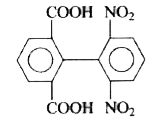Which of the following pairs correctly matches a hormone with the disease resulting from its deficiency ?
Thyroxine - Tetany
Parathyroid - Diabetes mellitus
Luteinizing hormone - Failure of ovulation
Insuline - Diabetes insipidus
The correct Answer is:C
To solve the question regarding which hormone correctly matches with the disease resulting from its deficiency, we can analyze each option step by step.
1. Understand the Question: We need to identify which pair of hormone and disease is correctly matched based on the deficiency of the hormone.
2. Analyze Option A:
- Hormone: Thyroxine
- Disease: Tetanus
- Analysis: Tetanus is not caused by a deficiency of thyroxine. Tetanus is related to the bacteria *Clostridium tetani* and is associated with low calcium levels, which are regulated by parathormone.
- Conclusion: This pair is incorrect.
3. Analyze Option B:
- Hormone: Parathyroid hormone
- Disease: Diabetes mellitus
- Analysis: Diabetes mellitus is primarily caused by a deficiency of insulin, not parathyroid hormone. Parathyroid hormone regulates calcium levels in the blood.
- Conclusion: This pair is incorrect.
4. Analyze Option C:
- Hormone: Luteinizing hormone (LH)
- Disease: Failure of ovulation
- Analysis: Luteinizing hormone is crucial for ovulation. A deficiency in LH can lead to failure of ovulation, making this pair a correct match.
- Conclusion: This pair is correct.
5. Analyze Option D:
- Hormone: Insulin
- Disease: Diabetes insipidus
- Analysis: Diabetes insipidus is caused by a deficiency of antidiuretic hormone (ADH), not insulin. Insulin deficiency leads to diabetes mellitus.
- Conclusion: This pair is incorrect.
6. Final Conclusion: After analyzing all the options, the only correct match is:
- Correct Pair: Luteinizing hormone and failure of ovulation (Option C).
Final Answer:
The correct answer is Option C: Luteinizing hormone - Failure of ovulation.
---
- Hormone: Thyroxine
- Disease: Tetanus
- Analysis: Tetanus is not caused by a deficiency of thyroxine. Tetanus is related to the bacteria *Clostridium tetani* and is associated with low calcium levels, which are regulated by parathormone.
- Conclusion: This pair is incorrect.
- Hormone: Parathyroid hormone
- Disease: Diabetes mellitus
- Analysis: Diabetes mellitus is primarily caused by a deficiency of insulin, not parathyroid hormone. Parathyroid hormone regulates calcium levels in the blood.
- Conclusion: This pair is incorrect.
- Hormone: Luteinizing hormone (LH)
- Disease: Failure of ovulation
- Analysis: Luteinizing hormone is crucial for ovulation. A deficiency in LH can lead to failure of ovulation, making this pair a correct match.
- Conclusion: This pair is correct.
- Hormone: Insulin
- Disease: Diabetes insipidus
- Analysis: Diabetes insipidus is caused by a deficiency of antidiuretic hormone (ADH), not insulin. Insulin deficiency leads to diabetes mellitus.
- Conclusion: This pair is incorrect.
- Correct Pair: Luteinizing hormone and failure of ovulation (Option C).
The correct answer is Option C: Luteinizing hormone - Failure of ovulation.
Topper's Solved these Questions
- CELL- THE BASIC UNIT OF LIFE ( CELL AND ITS STRUCTURAL ORGANISATION )BOOK - TRUEMEN BIOLOGY ENGLISHCHAPTER - CELL- THE BASIC UNIT OF LIFE ( CELL AND ITS STRUCTURAL ORGANISATION )EXERCISE - MULTIPLE CHOICE ANSWER TYPE
308 Videos
- EXCRETORY PRODUCTS AND THEIR ELIMINATIONBOOK - TRUEMEN BIOLOGY ENGLISHCHAPTER - EXCRETORY PRODUCTS AND THEIR ELIMINATIONEXERCISE - MULTIPLE CHOICE OUESTIONS
191 Videos
Similar Questions
Knowledge Check
Which of the following pairs is correctly matched?
A1, 3 and 4B2, 3 and 4Call of theseDnone of theseWhich of the following pairs is correctly matched?
ACH3−CH=C=CH2 , optically activeB C
C D
D Optically inactive
Optically inactive
Which one of the following pairs correctly matches a hormone with a disease resulting from its deficiency?
View SolutionWhich of the following pair is correctly matched ?
View SolutionWhich of the following pairs is correctly matched ?
View SolutionWhich of the following pairs is correctly matched ?
View SolutionWhich of the following pairs is correctly matched ?
View SolutionWhich of the following pairs is correctly matched?
View Solution
